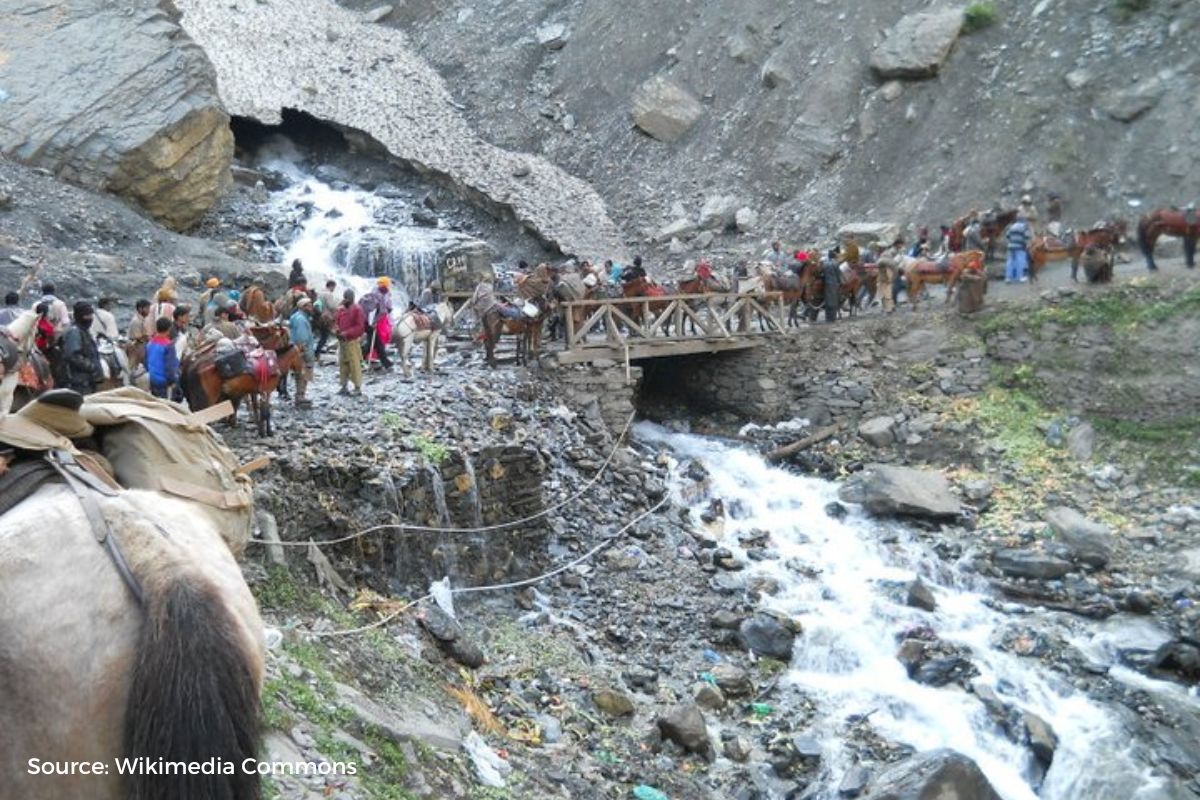Tragedy struck during the annual Amarnath Yatra pilgrimage when five more devotees lost their lives in the past 36 hours, bringing the total death toll to 24 this year. Authorities revealed that most of these deaths were the result of altitude sickness, which led to oxygen deprivation and subsequent cardiac arrest.
Four of the incidents occurred on the Pahalgam route, while one was reported on the Baltal route. The victims included an ITBP officer who died while on duty. The deceased pilgrims came from Uttar Pradesh, Madhya Pradesh, Haryana and Gujarat.
Pilgrims, unaccustomed to such conditions, confront a significant challenge posed by the high altitude of 3,888 meters above sea level at the Amarnath cave sanctuary. Consequently, the lack of acclimatization gives rise to altitude sickness as a primary concern.
Health risks at Amarnath yatra
People find it difficult to breathe in the rarefied air at these altitudes due to a lower concentration of oxygen. This oxygen deprivation can cause respiratory distress, and in severe cases, it can lead to cardiac arrest.
Speaking to Ground Report One of the doctor in Sonamrag Hospital said that high-altitude places have rarefied air with reduced oxygen levels. Combined with exhaustion and pre-existing lung conditions, this can have fatal consequences. The Amarnath cave sanctuary itself is situated at an elevation of 3,888 meters above sea level.
“The reduced oxygen levels at high altitudes frequently cause cardiac arrest, which is observed as a leading cause of death among Amarnath pilgrims,” he stated.
“Some pilgrims commence their Yatra without recognizing the potential dangers that pre-existing medical conditions may present in a demanding environment. Physical exertion and the oxygen-deprived atmosphere can amplify heart disease, respiratory disorders, and other chronic illnesses, thereby increasing vulnerability to adverse incidents” he adds.
Medical facilities
Authorities along the Yatra routes have established medical facilities to ensure the provision of essential health services. These facilities also facilitate health screenings, specifically targeting individuals who are most susceptible to risks, which allows for timely and necessary interventions. Furthermore, they regularly issue guidelines and notices that emphasize the significance of one’s physical well-being, the need for thorough medical examinations prior to embarking on the pilgrimage, and the adherence to security protocols.
The authorities have banned junk food from the free kitchens (Langars) set up for the Yatra, including halwai items, parathas, puris, sweets, and cold drinks. Additionally, they have banned the sale of cigarettes in and around the Yatra base and transit camps.
The 62-day-long Yatra, which started on July 1 and coincides with the Shravan Purnima festival, will continue until August 31. Earlier, another Yatri from Madhya Pradesh tragically passed away due to a suspected heart attack while visiting Amarnath cave. Inclement weather had temporarily suspended the pilgrimage but it resumed after a two-day interruption.
Keep Reading
- Inclement weather in J&K, unseasonal snowfall, rains lash Ladakh
- Amarnath yatra pilgrims urinating in Sindh river: A threat to environment
- Mandi is Himachal’s most landslide-exposed zone and we are widening roads here
- Cracks in homes and shattered dreams: Cost of Z-Morh tunnel in Gagangir
Follow Ground Report for Climate Change and Under-Reported issues in India. Connect with us on Facebook, Twitter, Koo App, Instagram, Whatsapp and YouTube. Write us on GReport2018@gmail.com.






